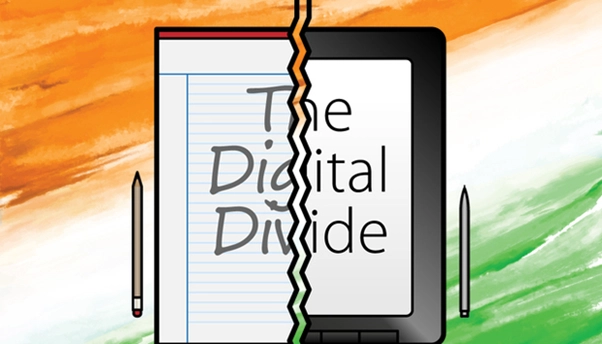Last week I attended a number of very interesting talks, ranging from those given at my party’s Spring Conference, via a talk from one of the professors at my university to a conference hosted by Computing magazine. A recurring theme seems to be the Digital Divide.
What do I mean by the Digital Divide?
Well, the divide comes in many forms and can operate on both a macro and a micro level. Worldwide, there is unequal access to resources anyway, and when it comes to distributing the resources available, there can be discriminatory practices and biased thinking – I don’t think I need to expand on that, as we all know that bias is there, whether intentional or subconscious. The bias extends to any data collected. In the case of healthcare, for example, the medications produced from test results obtained from white men could easily cause women and people from different ethnic backgrounds to react completely differently. For more on this see for example Pharmacogenomics and Race: Can Heritage Affect Drug Disposition? | Wolters Kluwer, as well as Invisible Women by Caroline Criado Perez – a world designed for men | Science and nature books | The Guardian
But I digress. I wanted to talk about the Digital Divide, and rather than talk about the global problems of access, I shall restrict myself to the UK. So, first of all there is the issue of access to broadband, which varies widely. Not only is there a question of availability, particularly in rural and sparsely populated areas, there is also the speed to consider. Many parts of Scotland, Wales and Northern Ireland are woefully provided for in this respect. This gives people in, say, London, a big advantage compared to somebody in the north of Scotland. So that’s the first part of the Digital Divide.
Secondly, access to the technology also varies widely, mostly in accordance with family income and family size. During lockdown, it was discovered that many children could not access online learning at all, and there is a huge gap in their education as a result. Children from large families were also disadvantaged if they had to share devices. We all heard about children using the mobile data on their mother’s mobile phone to access learning, which was all very well until the cost became a factor. Those children from better-off families in big towns were able to leap ahead of their peers simply because of their family circumstances. That’s the second part of the Digital Divide, and access is still a problem. Lindsey Parslow of Business2Schools gave a talk about her charity’s work in giving refurbished and wiped laptops donated by businesses to schools, and any school is likely to need laptops to give to pupils – just give your local primary a call.
Demographics is the third factor in the Digital Divide, with wealthier and better educated people having higher levels of basic digital literacy. Almost half of those with no formal education and 28% of people aged over 65 have no digital skills at all. Overall, 1 in 11 UK adults were found to have no digital skills and 1 in 12 had very limited skills (Ipsos Mori, 2020). This is a problem as more and more public services require interaction via the internet, possibly leading to the most vulnerable people being cut off from support. If you are aged 65 and over with little formal education in an area with limited access to the internet and no device capable of accessing it anyway, you risk being unable to access benefits and other help. Already, the shutting of Post Offices and the cutting down of bus services are making life much more difficult for older people, so that making access to services online only seems to me akin to the treatment of care home residents during lockdown – a concerted effort to “bump off” senior citizens!
Joking aside, if you know somebody who is struggling with technology, help them if you can. If you have some devices you no longer need, don’t leave them to take up space in a cupboard. Of course wipe the data first, then donate them, sell them, or recycle them if they are too old to be of use to anybody else.
Technology is changing all the time and if you have a device that is old, don’t bin it, recycle it through a specialist recycling company that can recover some of the scarce resources used in technology, such as rare metals. E-waste is fast becoming as big a problem as discarded plastic and it must be dealt with properly.
So what’s the answer to the Digital Divide? As ever, education is key to levelling the playing field as well as ensuring a fairer distribution of access to the internet. The Westminster Bubble effect is particularly noticeable at present, where privileged and independently wealthy MPs have no idea about the lives of the poorest and most vulnerable in society.
At Octagon Technology we have years of experience in training people how to use their devices and software. Currently we are offering a series of masterclasses in various subjects – see some of our previous blogs:
In April we are launching CyberAwake, and you can sign up for different levels of cyber security training delivered in bite-sized chunks online.
We also offer bespoke training, so if you have a need, call us on 01522 797520 to find out if we can satisfy it!
Diana Catton – by-line and other articles
We can also advise on wiping data from hardware you want to pass on – again just call. If the device is going to charity then we will be happy to give our services for free to get that done.


